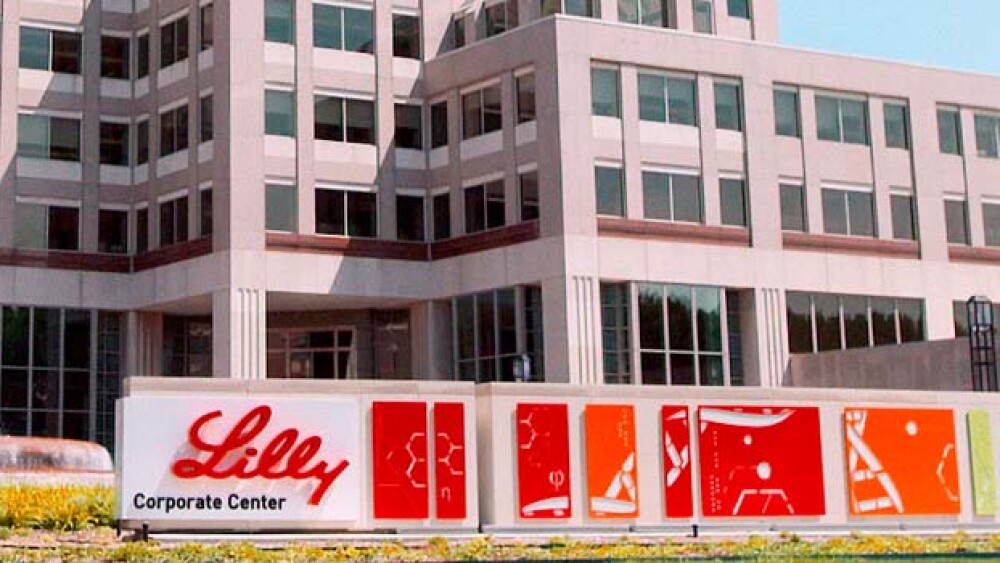Eli Lilly continues to make investments in its diabetes business.
Eli Lilly continues to make investments in its diabetes business. Not only has the pharma giant devoted millions of dollars to expanding its insulin manufacturing capabilities, the company is also focused on insulin delivery devices.
Since 2015, Lilly has been developing smart insulin delivery devices in a Cambridge, Mass. laboratory, The Wall Street Journal reported this morning. The goal of the Lilly research team is to build a device that helps patients reduce the “decision-making and guess work” of the more conventional approach to injecting insulin. The wearable device which is still in the prototype phase, would be to contain a three-day insulin supply that would be delivered to the patient as needed.
Enrique Conterno, head of Lilly’s diabetes business, told the Journal that Lilly is looking to not only develop the insulin diabetes patients require, but to be “an integrator of the system” that includes the development of delivery devices. By not merging the two sides of the insulin delivery business under one umbrella, Conterno told the Journal that could lead to Eli Lilly’s diabetes business becoming “obsolete.”
FireceBiotech noted that the “doomsday prediction” comes ahead of biosimilar challenges to Lilly’s core diabetes products that include Humalog and Humulin. That’s particularly important as insurance companies have toughened “payer negotiating tactics in the U.S.,” FierceBiotech said. That move by insurance and payer groups has forced companies that at one time could rely on insulin as a “cash cow” to look for other revenue streams. In Lilly’s case, it’s the possibility of insulin delivery devices.
Despite Lily’s size and resources, Fierce said this will be unfamiliar territory for the pharma giant. Additionally, it will pit the company against the likes of Medtronic, which won regulatory approval last September for its MiniMed 670G system - the first Hybrid Closed Loop insulin delivery system to win approval. Medtronic’s position in the insulin pump market was further solidified in October after Johnson & Johnson announced it was closing down its subsidiary Animas Corporation and exiting the insulin pump market. In its announcement, the company told its customers about its decision and informed them of options they could find with Medtronic.
At the same time, Lilly made a move that underscored its determination to build a large insulin ecosystem. This morning, Lilly and California-based DexCom, Inc. struck a deal to combine Lilly’s smart insulin delivery devices and Dexcom CGM (continuous glucose monitoring) “to improve the future of diabetes management.” The deal moves DexCom into Lilly’s Connected Diabetes Ecosystem – a plan that merges the strengths of Lilly’s core diabetes program with partner groups to help patients manage their care. In a statement, Conterno said that DexCom will be an “important collaborator in our mission to improve outcomes and reduce the daily burden for people with diabetes.”
Not only is Lilly moving to forge new partnerships for diabetes treatments, the company is heavily investing in its core business. Expanding its insulin production is part of the company’s plan of investing $850 million across its U.S. manufacturing operations over the course of the year. When Lilly first announced its $850 million investment, the company said the move will expand its diabetes products manufacturing operations in the U.S., which includes a new $140 million insulin cartridge production facility. Additionally, Eli Lilly said it will invest $85 million to expand manufacturing of its Trulicity-branded diabetes injection device. Since 2012, Eli Lilly has invested more than $1.2 billion to boost its domestic insulin manufacturing operations. Over the past decade, the company has spent more than $5 billion globally.





